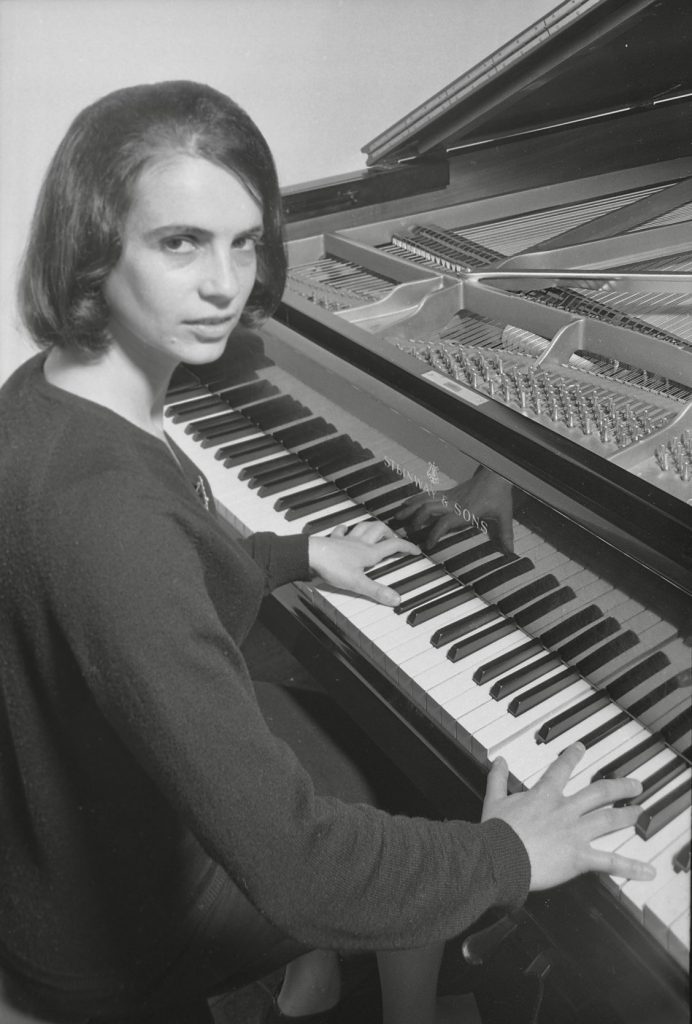
Beginning in March 1964, over the course of two years Adrian Flowers photographed the concert pianist Nelly Ben-Or on three separate occasions. The first two sittings were on 20 March and 25 March 1963, while the third was on 13 November 1964 [Archive nos. 4495, 4505, and 4952 respectively]. The commission came from a ‘Mrs. Clore’, presumably a friend or patron of the musician. The first session involved both head and shoulder portraits, with Nelly, then aged thirty, wearing a plain dress. The photographs were taken in a domestic interior.
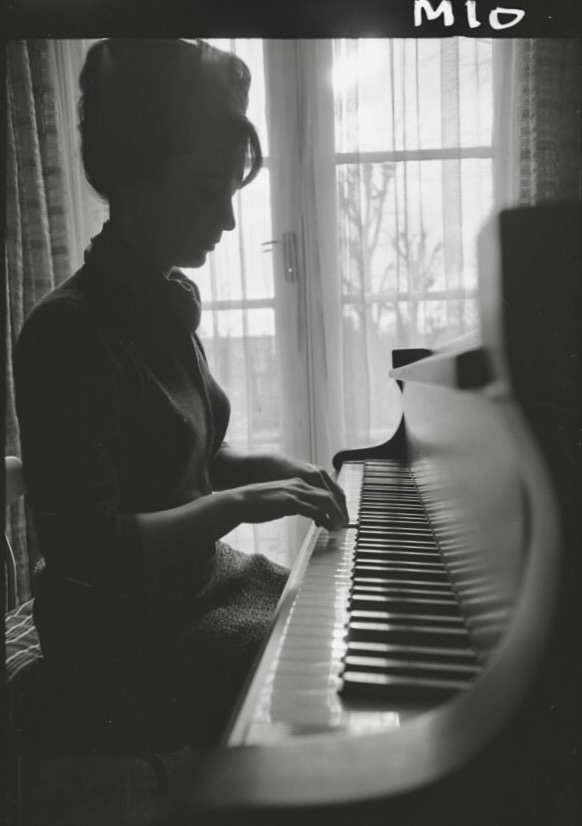
There is also a sequence where she stands, or sits at a Steinway grand piano, with her hair coiffured, wearing an evening dress. The photographs show a dark-haired beautiful woman. In some, she has a serious expression, in others a captivating smile, but in several can be discerned hints of the traumas she had endured during her lifetime.
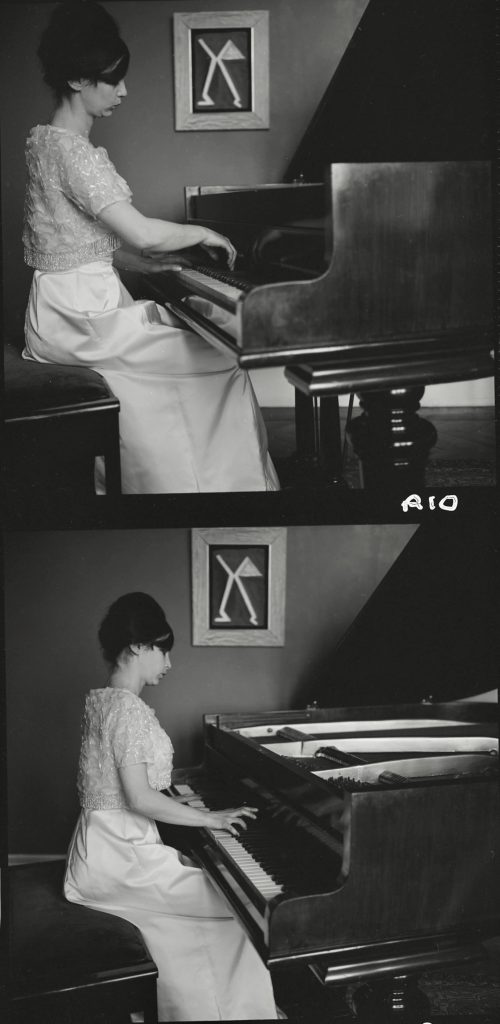
The November 1964 photographs show Nelly sitting again at a Steinway piano, but this time she is dressed simply and has her hair tied back. These may have been taken in a rehearsal room at the Guildhall School of Music. One of these photographs was used on the cover of her autobiography Ashes to Light: A Holocaust Childhood to a Life in Music, published in 2019. A frank narrative, it recounts the nightmares of life under Nazi rule, and the joy of liberation, but also the inevitable periods of depression and post-traumatic stress, from which only music could liberate her.
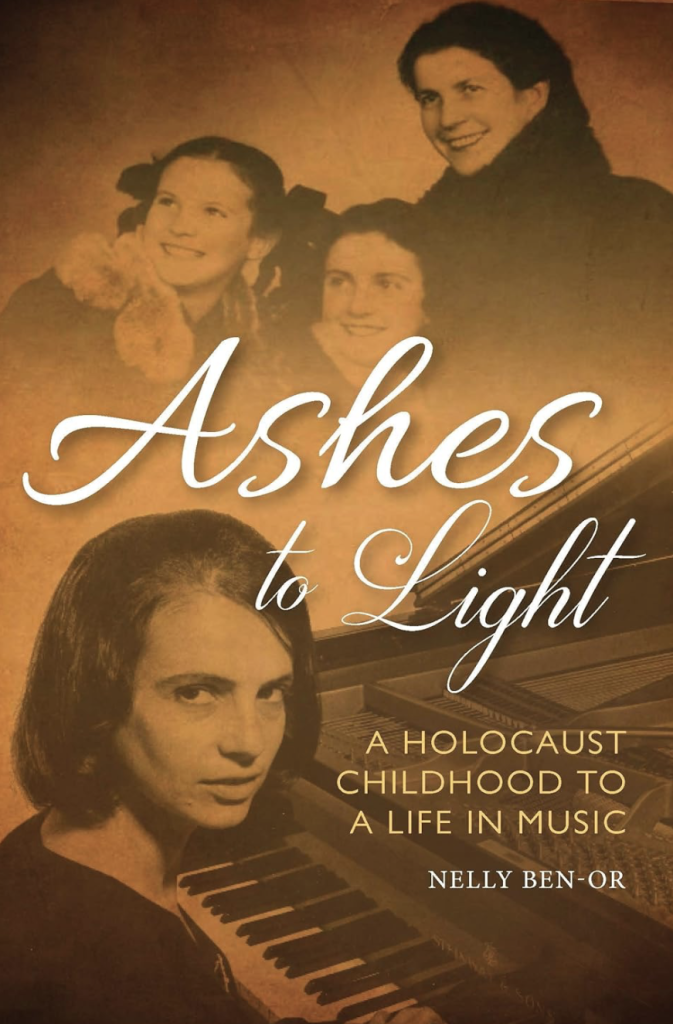
Born in 1933 in Lwów, eastern Poland (now Lviv, in Ukraine) Nelly Ben-Or came from a middle-class Jewish family. Her mother’s family name was Linden, while her father, Leon Podhoretz, was a travelling salesman for L & C Hardtmuth, a company based in České Budejovice that manufactured fountain pens and Koh-i-noor propelling pencils. However, the peace and security of Nelly’s childhood was destroyed when Germany invaded Poland in 1939. Although the Molotov-Ribbentrop Pact meant the city initially came under Soviet control, Operation Barbarossa overturned that, and Nelly spent the war years fearing for her life. From the age of five, she had played the piano, but when German soldiers raided her home and confiscated everything of value, including the piano, the family was forced to move to a ghetto, where conditions were grim. Her mother and sister Fryderyka managed to survive, but her father was taken to Janowska concentration camp and murdered. Helped by a Dr. Poldi, Nelly and her mother Antonina fled Lviv. Using false identity papers and pretending to be Catholics, they travelled by train to Warsaw, where they stayed with the Topolskis, a Christian family. The Topoloskis protected them, but when neighbours became suspicious, they had to move on. Antonina found work as a maid with the Kowalskis, and Nelly was given piano lessons along with the daughter of the family. But once again neighbours became suspicious. During the Warsaw Ghetto uprising she and her mother were rounded up and narrowly escaped being sent to a concentration camp. By now penniless refugees, they found shelter in a converted pigsty in Pruszków where they lived in great poverty. Hearing the sound of a piano from a nearby house, they met a piano teacher who took pity and gave Nelly lessons each day. While enduring these hardships, Nelly dreamed of being able to live free from persecution and in 1950 she was awarded a scholarship to study under Henrietta Michaelson at the Music Academy in Jerusalem. Two years later she won first prize at the Mozart Piano Competition in Israel.
In 1960 Nelly moved to England, where she met and married Roger Clynes. Her mother later joined her in England. Nelly and her husband settled in Northwood in London. Their daughter Daniela has gone on to become a noted jazz singer, creating a number of solo shows including Journey, based on her mother’s life and escape from the Warsaw Ghetto. Nelly has had a long and distinguished career as a concert pianist, and since 1975 has been a teacher at the Guildhall School of Music. Inspired and taught by Patrick MacDonald, she uses the Alexander Technique as part of piano playing. Her many CDs include Czech Piano Quartets, Chopin Dances, Beethoven Bagatelles and Schubert Impromptus. In 2020 Nelly received the MBE for services to Holocaust education.
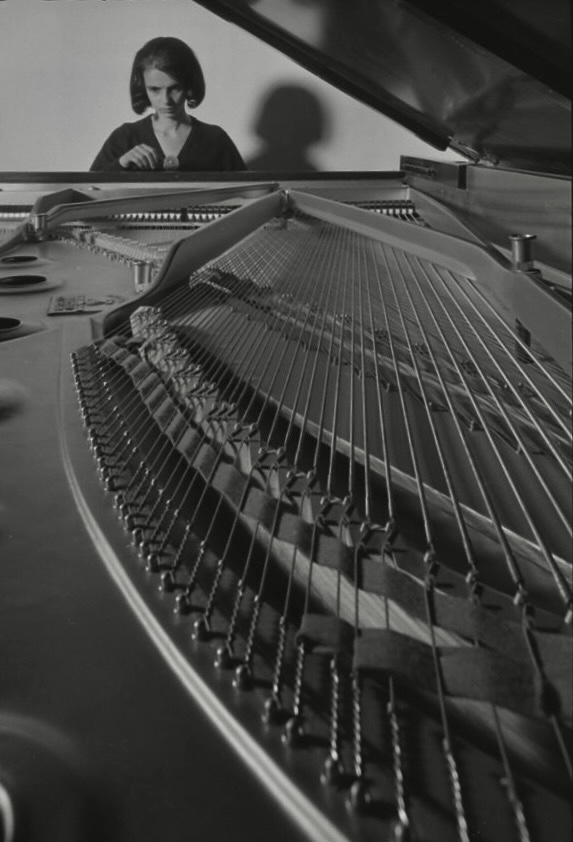
Text: Peter Murray
Editor: Francesca Flowers
All images subject to copyright.
Adrian Flowers Archive ©